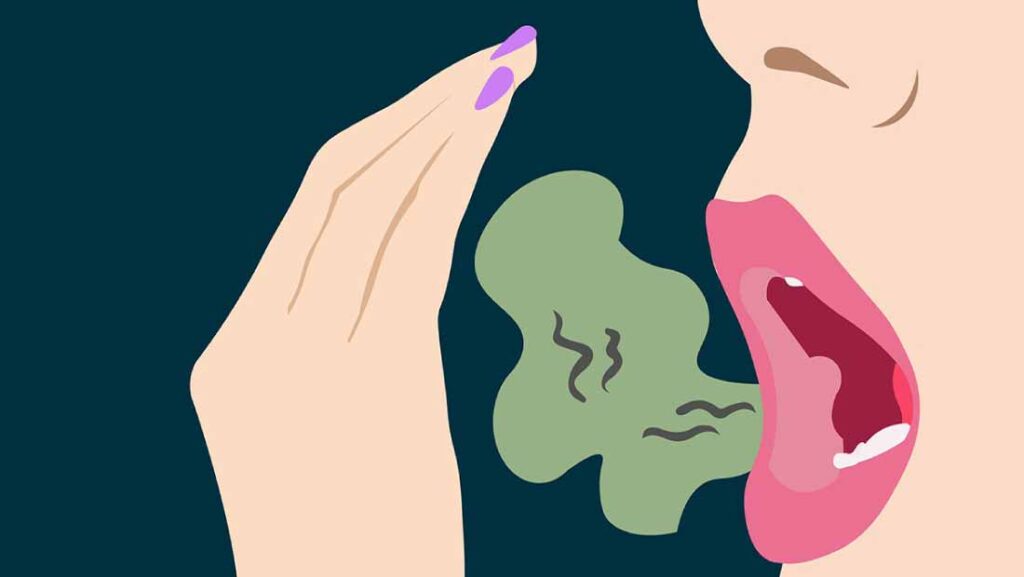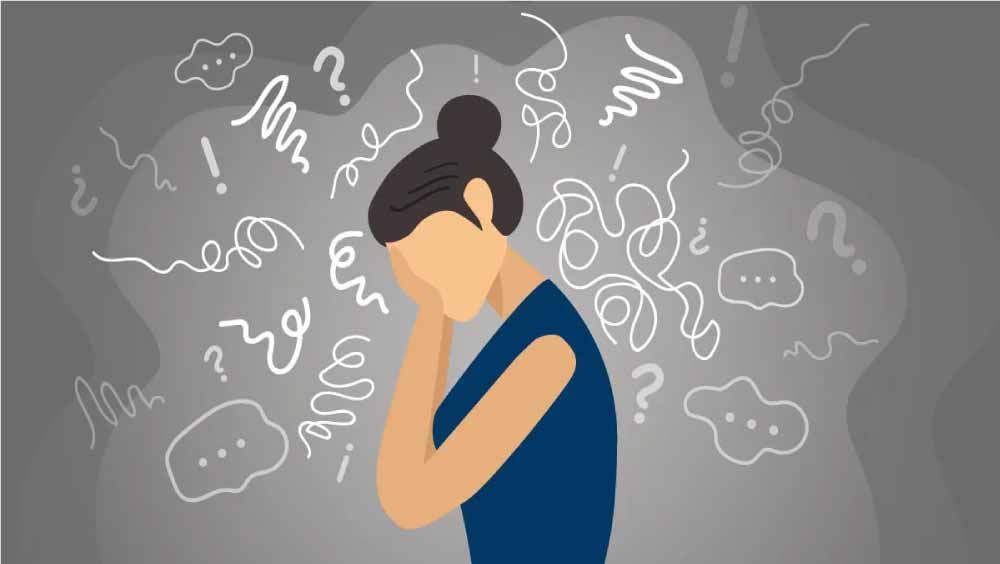Halitosis definition
Halitosis is a medical term to describe bad breath. It can be caused by a variety of factors, including poor oral hygiene, gum disease, digestive problems, and other underlying medical problems. Treatment depends on the underlying cause of the bad breath.
Causes
Common causes of halitosis include:
- Poor oral hygiene: The buildup of bacterial plaque and tartar on the teeth and tongue can cause bad breath.
- Gum diseases: Diseases such as gingivitis and periodontitis can cause inflammation and bleeding in the gums, which can contribute to bad breath.
- Tobacco: Smoking can cause bad breath due to the buildup of nicotine and carbon monoxide in the lungs.
- Digestive problems: Disorders such as gastroesophageal reflux and gastritis can cause bad breath due to the accumulation of stomach acid in the mouth.
- Respiratory problems: Respiratory diseases such as sinusitis and bronchitis can cause bad breath due to the buildup of mucus in the mouth.
- Medications: Some medications can cause bad breath as a side effect.
- Diet: Eating foods high in sugar and fat can cause temporary bad breath.
- There are some other less common causes:
- Dehydration: Lack of fluids in the body can cause a buildup of toxic compounds in the mouth, which can contribute to bad breath.
- Endocrine problems: Disorders such as diabetes can cause bad breath due to changes in blood sugar levels.
- Kidney problems: Kidney diseases can cause bad breath due to the accumulation of toxic compounds in the body.
- Oral thrush: A fungal infection of the mouth can cause bad breath due to fungal buildup.
- Metabolic disorders: Rare diseases such as ketosis and the habit of sucking air can cause bad breath.
It is important to remember that bad breath can be a symptom of an underlying medical problem and it is advisable to see a doctor if bad breath persists or is recurrent.
Etiology of Halitosis
The etiology of halitosis refers to the underlying causes of bad breath. Most of the time, bad breath is due to a buildup of bacterial plaque and tartar on the teeth and tongue. This can be caused by poor oral hygiene, such as not brushing your teeth often enough or flossing.
Gum diseases, such as gingivitis and periodontitis, can also contribute to bad breath. These diseases can cause inflammation and bleeding in the gums, which can increase the amount of bacteria in the mouth.
In addition, there are other factors that can contribute to bad breath, including smoking, digestive problems, breathing problems, and some medications. In some cases, bad breath can be caused by an underlying medical problem, such as kidney disease or a metabolic disorder.
It is important to remember that bad breath can be a symptom of an underlying medical problem and it is advisable to see a doctor if bad breath persists or is recurrent.
Halitosis Treatment
Treatment of halitosis depends on the underlying cause of bad breath. Here are some common treatments for bad breath:
- Oral hygiene: Improving oral hygiene is essential to treat bad breath. This includes brushing and flossing regularly, as well as mouth cleaners and mouthwashes.
- Treatment of gum disease: If bad breath is caused by gum disease, it is important to treat these diseases to reduce the amount of bacteria in the mouth. This may include procedures such as professional dental cleanings and treatments for periodontal diseases.
- Quitting smoking: Smoking is a common cause of bad breath, so quitting smoking can help improve breath.
- Treatment of digestive problems: If bad breath is caused by digestive problems, it is important to treat these problems to reduce the accumulation of stomach acid in the mouth.
- Treatment of breathing problems: If bad breath is caused by breathing problems, it is important to treat these problems to reduce the buildup of mucus in the mouth.
- Change in medications: If bad breath is caused by medications, it is important to talk to your doctor about the possibility of changing medications.
- Diet: Eating fresh, fiber-rich foods as well as drinking enough water can help improve breath temporarily
In cases where bad breath is caused by an underlying medical problem, it is important to treat this problem to improve bad breath. It is important to see a doctor if bad breath persists or recurs.
Dental irrigator
A dental irrigator is a device that uses high-pressure water jets to clean teeth and gums. Dental irrigators are popular with people looking for an effective way to clean their teeth and gums, especially in hard-to-reach areas with the toothbrush.
Dental irrigators work by placing a tube in the mouth and activating the device to send high-pressure jets of water through the tube and into the teeth and gums. These water jets help remove plaque and tartar from the teeth and gums, as well as reduce gum inflammation.
There are several types of dental irrigators available on the market, including those that connect to the water intake and those that use a water reserve unit. It is important to follow the manufacturer’s instructions to ensure safe and correct use of the device.
In general, regular use of a dental irrigator can help improve oral health, but it is important not to replace tooth brushing and spinning with the use of a dental irrigator. It is important to follow your dentist’s recommendations to determine if a dental irrigator is suitable for your oral hygiene and as a complement to your cleaning routine.


